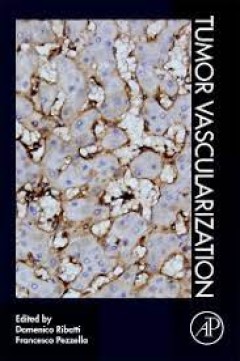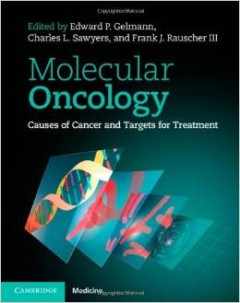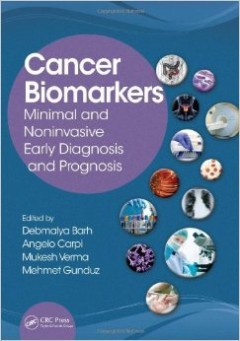Filter by

Investigating Hippo-YAP Downstream Gene Expression Under Glutamine and Serum …
- Edition
- -
- ISBN/ISSN
- EP092
- Collation
- 37 p. : ill. ; 30 cm.
- Series Title
- -
- Call Number
- EP BM-016
- Edition
- -
- ISBN/ISSN
- EP092
- Collation
- 37 p. : ill. ; 30 cm.
- Series Title
- -
- Call Number
- EP BM-016

Investigating the Mechanism of microRNA on Prostate Cancer and its Effect Tow…
- Edition
- -
- ISBN/ISSN
- EP067
- Collation
- 41 p. : ill. ; 30 cm.
- Series Title
- -
- Call Number
- EP BT-015
- Edition
- -
- ISBN/ISSN
- EP067
- Collation
- 41 p. : ill. ; 30 cm.
- Series Title
- -
- Call Number
- EP BT-015

Computer Vision network-based detection of brain cancer with Magnetic Resonan…
Cancer is a complex disease that involves the growth of cells inside the body. In 2020, more than 10 million people died from cancer worldwide. One of them is brain cancer. Brain cancer itself has higher mortality rate on men rather than women. One of the tools that play pivotal role in detecting cancer is Artificial Intelligence. The Artificial Intelligence helps on analyzing the image pat…
- Edition
- -
- ISBN/ISSN
- -
- Collation
- -
- Series Title
- -
- Call Number
- BI 24-004

Assessing The Cytotoxic Effect of Capsicum annuum extract on Cervical Cancer
Capsicum annuum, or chili pepper, is known from traditional medicine to have anti-tumor properties. Recent researches isolated to compound responsible to be Capsaicin, with few researches opposing this notion. Since there are some disagreements as to the validity of this claim, it is important that further tests need to be conducted to prove or disprove the point. Hence, this thesis aimed to…
- Edition
- -
- ISBN/ISSN
- -
- Collation
- -
- Series Title
- -
- Call Number
- BM 24-003

Pooled Whole-genome CRISPR/Cas12a Loss-of-Function Screens Reveal A Novel Pre…
Though rare, atypical teratoid/rhabdoid tumors (ATRT) remain a clinically challenging pediatric tumor and lack defined treatments. “One-size-fits-all” multimodal regimens have largely been of modest clinical benefits thereby urging the development of precision medicine for ATRT. However, the single- mutation nature of pediatric tumors like ATRT has misrepresented the potential of non-mut…
- Edition
- -
- ISBN/ISSN
- -
- Collation
- -
- Series Title
- -
- Call Number
- BM 24-027

Investigation on Effect of Cell Seeding Number Toward Hepatic Multicellular T…
Cancer remains a global health challenge in need of precise, cost-effective, and scalable research tools for comprehensive investigations. Spheroid-based methodologies emerge as reliable, easily adaptable, and highly scalable techniques, offering an improved representation of in-vivo conditions compared to conventional 2D cell cultures. This study utilizes the Huh-7 cell line to generate hep…
- Edition
- -
- ISBN/ISSN
- -
- Collation
- -
- Series Title
- -
- Call Number
- BM 24-045

Investigating the Role of Tumor-Associated Neutrophils (TANs) in the Suppress…
Glioblastoma (GBM) is known as a highly aggressive and malignant form of brain cancer. Despite advances in understanding the genetic and molecular basis of glioblastoma, it has a poor prognosis with a median survival rate of 9 months. The complex interplay between malignant cells and the surrounding tumor microenvironment (TME) plays a pivotal role in tumor progression and treatment respons…
- Edition
- -
- ISBN/ISSN
- -
- Collation
- -
- Series Title
- -
- Call Number
- BT 24-015

Novel High Throughput Drug Screening Reveals Therapeutic Opportunities for Pe…
Atypical teratoid rhabdoid tumor (ATRT) is an aggressive pediatric CNS tumor yet lacking standardized therapies while current management standards are not of significant clinical benefit. With the opportunity of accessing the Childhood Cancer Model Atlas (CCMA)’s vast pediatric cancer resources, high-throughput drug screening (HTS) was carried out on the CCMA’s ATRT cohort against the novel…
- Edition
- -
- ISBN/ISSN
- -
- Collation
- -
- Series Title
- -
- Call Number
- EP BM-030

Tumor vascularization
Tumor Vascularization discusses the different types of growth of tumor blood vessels and their implications on research and healthcare. The book is divided into three parts: the first one, General Mechanisms, discusses different vessel growth mechanisms, such as sprouting angiogenesis, non-angiogenesis dependent growth, intussusceptive microvascular growth, vascular co-option and vasculogenic m…
- Edition
- -
- ISBN/ISSN
- 9780128194942
- Collation
- xi, 186 p. : ill. : ind. ; 23 cm.
- Series Title
- -
- Call Number
- 616.992 Tum

Molecular oncology : causes of cancer and targets for treatment
The genomic era has allowed enormous strides in our understanding of the molecular changes that underlie malignant transformation. Mutations have been discovered that are critical drivers of large cross-sections of human cancers. These discoveries have allowed us to find drugs that target these drivers and make important strides in treatment. Genomics and high-throughput technologies have illum…
- Edition
- -
- ISBN/ISSN
- 9780521876629
- Collation
- xxi, 961 p. : ill. : ind. ; 29 cm
- Series Title
- -
- Call Number
- 616.994 Mol

Large Oncosomes Contain Distinct Protein Cargo and Represent a Separate Funct…
- Edition
- -
- ISBN/ISSN
- 1949-2553
- Collation
- []
- Series Title
- -
- Call Number
- 616.99 Min L
- Edition
- -
- ISBN/ISSN
- 1949-2553
- Collation
- []
- Series Title
- -
- Call Number
- 616.99 Min L

Cancer biomarkers : minimal and noninvasive early diagnosis and prognosis
Gleaning information from more than 100 experts in the field of cancer diagnosis, prognosis, and therapy worldwide, Cancer Biomarkers: Non-Invasive Early Diagnosis and Prognosis determines the significance of clinical validation approaches for several markers. This book examines the use of noninvasive or minimally invasive molecular cancer markers that are under development or currently in use.…
- Edition
- -
- ISBN/ISSN
- 9781466584280
- Collation
- xxiii, 949 p. : ill. : ind. ; 26 cm
- Series Title
- -
- Call Number
- 616.994 Can
 Computer Science, Information & General Works
Computer Science, Information & General Works  Philosophy & Psychology
Philosophy & Psychology  Religion
Religion  Social Sciences
Social Sciences  Language
Language  Pure Science
Pure Science  Applied Sciences
Applied Sciences  Art & Recreation
Art & Recreation  Literature
Literature  History & Geography
History & Geography